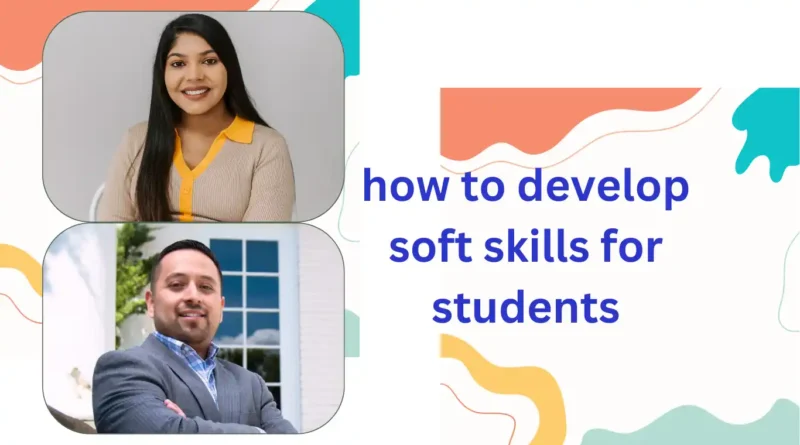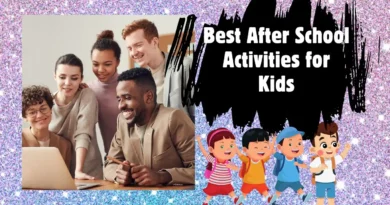How to Develop Soft Skills for Students?
Developing soft skills is crucial for students as they prepare for academic success, future careers, and personal growth. Soft skills, also known as interpersonal skills or personal qualities, encompass a wide range of attributes that enable individuals to effectively interact with others, navigate challenges, and adapt to different situations. Here are some practical strategies for students to develop and enhance their soft skills:
Communication Skills
Active Listening: Practice attentive listening to understand others’ perspectives and demonstrate empathy.
Verbal Communication: Engage in discussions, presentations, and debates to articulate ideas clearly and confidently.
Written Communication: Improve written communication skills through writing essays, reports, emails, and creative writing exercises.
Teamwork and Collaboration
Group Projects: Participate in group projects or team-based activities to collaborate with peers, delegate tasks, and achieve common goals.
Conflict Resolution: Learn to resolve conflicts and disagreements constructively by seeking compromise, understanding different viewpoints, and communicating effectively.
Leadership Opportunities: Take on leadership roles in group projects or extracurricular activities to develop skills in delegation, motivation, and decision-making.
Critical Thinking and Problem-Solving
Analytical Skills: Develop analytical thinking by evaluating information, identifying patterns, and drawing logical conclusions.
Problem-Solving Exercises: Engage in problem-solving activities, puzzles, and case studies to enhance critical thinking and decision-making abilities.
Creativity: Foster creativity by exploring new ideas, experimenting with different approaches, and thinking outside the box to solve challenges.
Time Management and Organization
Prioritization: Learn to prioritize tasks and manage time effectively to meet deadlines and balance academic, extracurricular, and personal responsibilities.
Goal Setting: Set SMART (Specific, Measurable, Achievable, Relevant, Time-bound) goals to stay focused, motivated, and accountable.
Use of Tools: Utilize tools such as planners, calendars, to-do lists, and digital apps to organize tasks and track progress.

Adaptability and Flexibility
Embrace Change: Develop resilience and adaptability by being open to new experiences, challenges, and feedback.
Learn from Failure: View setbacks as learning opportunities, reflect on mistakes, and identify areas for improvement to grow and develop resilience.
Cultural Awareness: Foster cultural competence by interacting with diverse individuals, learning about different cultures, and adapting communication styles accordingly.
Emotional Intelligence
Self-Awareness: Reflect on personal strengths, weaknesses, values, and emotions to develop self-awareness and self-regulation.
Empathy: Cultivate empathy by understanding and empathizing with others’ feelings, perspectives, and experiences.
Relationship Management: Build positive relationships by communicating effectively, resolving conflicts, and collaborating with others in a respectful and supportive manner.
Networking and Interpersonal Skills
Networking Events: Attend networking events, career fairs, and professional conferences to connect with peers, mentors, and industry professionals.
Professionalism: Practice professionalism in interactions with teachers, peers, and professionals, demonstrating courtesy, integrity, and professionalism.
Elevator Pitch: Develop a concise and compelling elevator pitch to introduce yourself and articulate your goals, strengths, and interests effectively.
Continuous Learning and Personal Development
Seek Feedback: Solicit feedback from teachers, mentors, and peers to identify areas for improvement and opportunities for growth.
Lifelong Learning: Cultivate a growth mindset and a passion for lifelong learning by exploring new subjects, hobbies, and interests outside the classroom.
Personal Development: Invest in personal development through self-help books, online courses, workshops, and seminars to enhance skills and achieve personal and professional goals.
Conclusion
In conclusion, developing soft skills is essential for students to succeed academically, professionally, and personally. By actively practicing and honing communication, teamwork, critical thinking, time management, adaptability, emotional intelligence, networking, and continuous learning, students can enhance their employability, leadership potential, and overall well-being. Encouraging a culture of soft skills development in educational institutions and providing opportunities for experiential learning and skill-building can empower students to thrive in today’s dynamic and interconnected world.




